See the rest of TIME’s Top 10 of Everything 2013 lists here
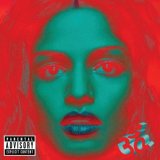
10. Matangi, M.I.A.
Pop provocateurs tend to age awkwardly, and M.I.A. often tries a little too hard to foment outrage (although it’s hard to trump having Julian Assange as an opening act). Still, her fourth album is plenty provocative and outrageous-sounding: dance music that’s twitchy like a slug of Third World-exploiting coffee, shot through with neon-bright digital distortion and mutated South Asian instrumentation. And her most potent weapon is still her dry, venomous, word-savoring voice.
.
.
.
.
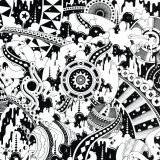
9. Mole City, Quasi
Twenty years into their collaboration, singer/guitarist/keyboard-abuser Sam Coomes and feral drummer Janet Weiss are still on such a roll that their ninth album is a double, just ’cause. They’re as wittily indignant as ever, and Coomes aims his bile inward as often as outward. The sharpest of Mole City‘s many homebrewed evocations of the early-’70s moment when Queen and Todd Rundgren and Badfinger were getting loud and weird is, naturally, called “Nostalgia Kills.”
.
.
.
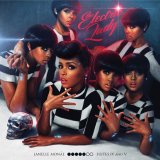
8. The Electric Lady, Janelle Monáe
Part soul revivalist, part retro-Afrofuturist, all robot — oh, fine, she just plays one on YouTube — Monáe is the kind of singer who’ll be the subject of Ph.D. dissertations a century from now. Her second album is presented as “suites” 4 and 5 in an ongoing sci-fi epic, featuring convincing pastiches of Stevie Wonder, the Jackson 5, and, most of all, Prince (who also turns up in the flesh). Monáe’s reach sometimes exceeds her grasp, but bless her for aiming so damn high.
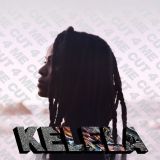
7. Cut 4 Me, Kelela
Every so often, somebody figures out how to bring the sounds of underground dance clubs into pop. This year, it’s the L.A.-based vocalist Kelela Mizanekristos, whose debut album (released as a free download) is built on the half-time beats and unsettling negative-space arrangements of the “bass music” collectives Night Slugs and Fade to Mind. It’s forbidding stuff, but it meshes with the sweet ’90s R&B inflections of Kelela’s singing — her aesthetic, as she puts it, is “Brandy but weirder.”
.
.
.
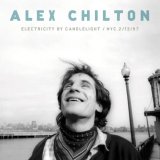
6. Electricity by Candlelight, Alex Chilton
On a February night in 1997, the power went out at the club where the late cult hero Chilton was playing — but somebody had an acoustic guitar, and somebody else had a cassette recorder, and so this thrilling, off-the-cuff set of covers was preserved. Chilton was always a contrarian, and he stopped making big artistic statements after his early-’70s band Big Star broke up, so this is just a document of a great entertainer having a ridiculously good night.
.
.
.
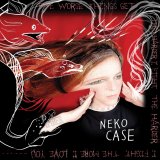
5. The Worse Things Get, The Harder I Fight, The Harder I Fight, The More I Love You, Neko Case
You can’t even call Case “alternative country” any more, despite the twang that will never leave her voice and the ache that casts a warming shadow over all of her music. Her new songs circle around the idea of exile from feeling, from loved ones, from received ideas about womanhood, and especially from home. To see her lyrics on a page, you’d think they were arch art-songa; when you hear her sing them, they cut as deeply as a friend’s late-night confession.
.
.
.
.
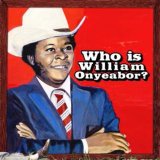
4. Who Is William Onyeabor?, William Onyeabor
Between the late-’70s and the mid-’80s, William Onyeabor released eight albums on his own Wilfilms label in Nigeria. Then he dropped out of public view altogether, and the peculiar genius of his percolating, synthesizer-centered grooves was lost to everyone but fanatical record collectors. This long-overdue career survey is riveting and unfailingly funky; you can hear the inspiration of Fela Kuti’s Afrobeat, and sounds that would turn into new wave a few years later, but Onyeabor mostly sounds like nobody else on the planet.
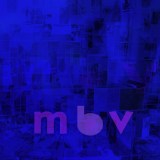
3. mbv, My Bloody Valentine
Twenty-one years after My Bloody Valentine’s epochal Loveless, guitarist/singer Kevin Shields’ endless string of assurances that they were almost done with a new album were abruptly replaced, one night, by an announcement that it was done and ready for download. Boom. (The late-’90s-style drum-‘n’-bass rhythms of “Wonder 2” suggest that they really had been working on it all along.) Shields is apparently the kind of perfectionist who can actually let go of something once it’s perfect: mbv‘s torrential wash of million-layers-deep guitars and purring honey-power voices is as glorious as he wanted it to be.
.
.
.
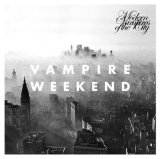
2. Modern Vampires of the City, Vampire Weekend
Vampire Weekend does the same thing with music that really clever writers do with words: their vocabulary’s immense, and so is their command of idiom and tone, and they use those gifts to be thoughtful and evocative rather than just to show off. (Unsurprisingly, singer Ezra Koenig does that with words, too.) You can spend days unpacking their third album’s allusions and juxtapositions, or you can just ride the ripples of its wry, ridiculously catchy meditations on the shift from over-comfortable youth to uncertain maturity.
.
.
.
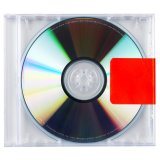
1. Yeezus, Kanye West
Kanye is the best there is, and he’s still not as good as he thinks he is. Has there ever been another great album this bitter, this entitled, this abrasively unsatisfied — or this self-aware about it? (See its most-quoted joke: “In a French-ass restaurant/Hurry up with my damn croissants.”) Yeezus is brief, spare, nasty, and as charismatic as a cult leader. Its music grinds sourly or lurches like an old rollercoaster; West’s voice drips contempt or hides behind frigid Auto-Tune effects. But Yeezus, has he ever got raw power.
Think we missed something? Tell us using hashtag #TIME2013
Follow @TIME

